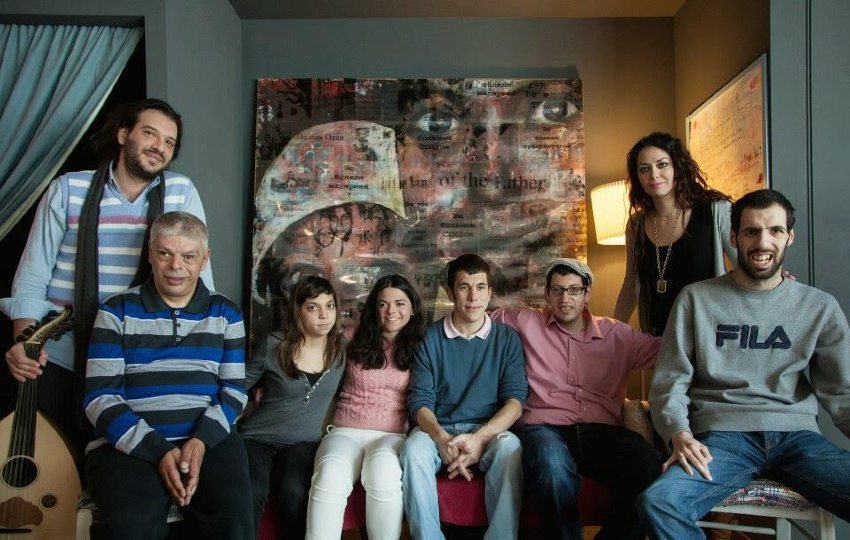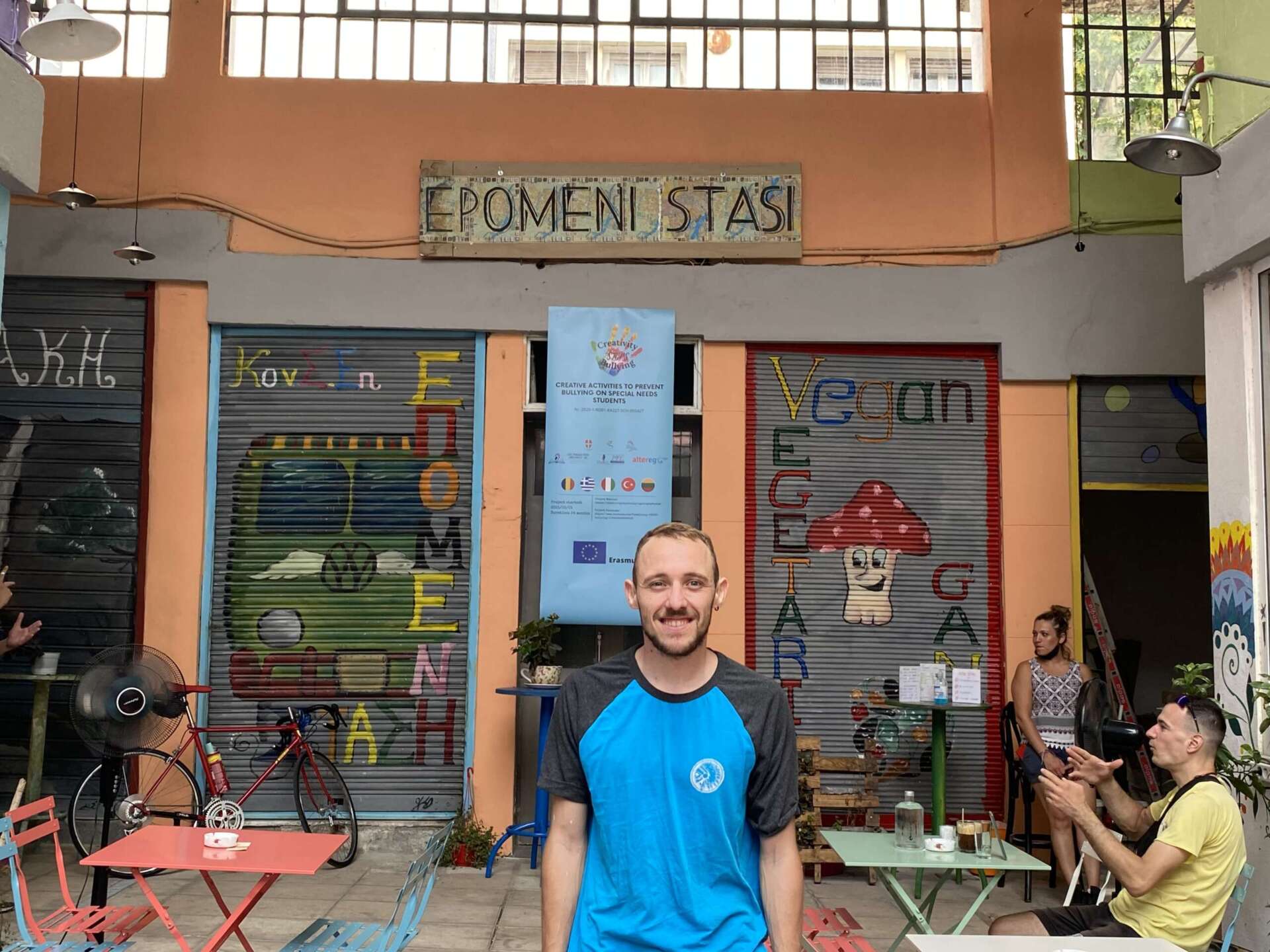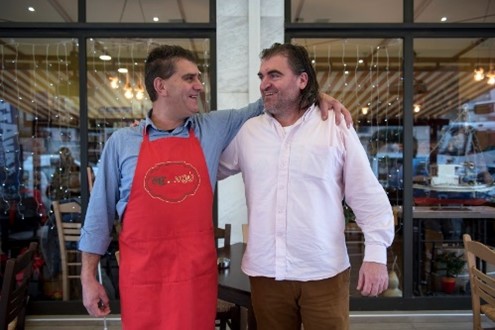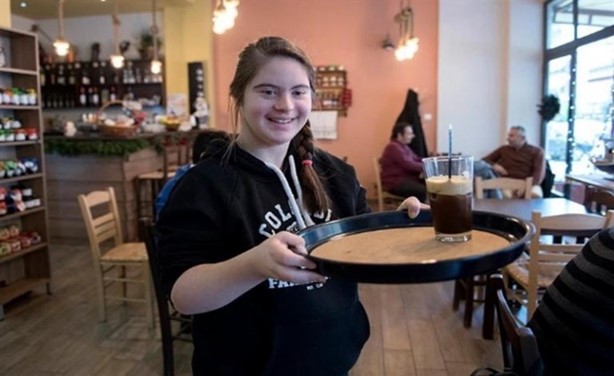Social enterprises in Greece are crucial for the social inclusion of people with disabilities.
I don’t like when I am told, “you can’t do that, you can’t do this,” and I am sure neither do you. Thankfully for me, not being a disabled person myself, this is not something that I hear often. But when I do, this usually has to do with something that requires training or extra physical capabilities that an average person does not possess.
However, a group of people, a large and diverse group actually, is constantly reminded of its incapabilities. This negativity creates a lot of harm for these people and creates further hindrances in their overall situation. Of course, as you may have guessed, I am talking about people with disabilities who are more often than not socially excluded.
Different degrees of social exclusion in Europe
The degree to which a person with disabilities is excluded is related to the severity of each individual’s case and the degree of opportunities for communal participation. Even though there are central European policies and guidelines for people with disabilities, there is no homogeneity in the EU-27 Member States. This fact is primarily attributed to cultural norms or economic factors.
This article will highlight the critical role social enterprises play in social the inclusion of people with disabilities in Greece with examples of successful social businesses.
Social Inclusion of disabled persons in Greece
Even though the Greek state gives significant incentives for employers to hire people with disabilities, these measures do not seem to have the expected results. For this reason, it is more common to find a disabled employee working in the public sector rather than in private businesses.
Despite that 24% of Greeks report some form of disability, it is hard to find people with disabilities in public for various reasons. Firstly, Greek cities are not easily accessible to people with disabilities to move around freely. Secondly, especially in closed communities like villages, families keep their disabled relatives at home to avoid “gossips” and “embarrassment.” This was the treatment that many disabled Greeks faced throughout the years and still continues to this day.
Social Enterprises in Greece greatly serve the ultimate cause for these people: their social inclusion in society and leading meaningful lives. The following examples of social businesses are Greek role models, going against the existing cultural norms that want disabled persons locked up without opportunities for active life participation.
4 social enterprises for social inclusion in Greece
Myrtillo Cafe
Myrtillo, which is the Greek word for “Blueberry,” is a Social Cooperative Enterprise with a Special Purpose to integrate vulnerable groups into the labor market according to Greek law. It is located in the city center of Athens, in Ambelokipi, and it first opened its doors as a cafeteria and an arts center back in October 2013. Furthermore, it is an innovative self-supporting business and training entity, where all employees are jointly responsible for its viability. More than 90% of Myrtillo’s employees are disabled with an opportunity to enter real life through honest work and have their own share of responsibilities as co-owners of this social business.
M.A.N.A
This Social Cooperative Enterprise in Athens was a private initiative of parents with children with special needs to create a space to enjoy life to its fullest. It is a place of understanding with expertise in keeping children with special needs entertained and tending to their vocational rehabilitation by improving their skills and cognitive abilities required in their daily lives. For that reason, M.A.N.A operates a café at its premises staffed by those same children with special needs. The café helps them train and learn new skills and at the same time to work in it serving their customers.
Epomeni Stasi
Epomeni Stasi, or “Next Stop,” is a social enterprise for social inclusion in the northern part of Greece, Thessaloniki. It is located in one of the city’s most iconic buildings in Thessaloniki, the “Modiano Market.” This café gave a new vibe to the almost deserted market that now attracts visitors who don’t mind ordering their drinks by showing them on a menu. Epomeni Stasi currently employs 8 deaf or hard of hearing people aged 25-35 years old, reportedly facing problems finding an occupation.
Me…nou
This social enterprise is a traditional restaurant in Drama that helps with the social inclusion of people with disabilities in northern Greece. “Me…nou” has a playful name that sounds similar to “menu” but literally means “With…thought”. So, “Me…nou” is a restaurant with its thought on the vulnerable members of our society as the people with disabilities. As servers at “Me…nou”, customers will find Paschalis and Maria. Despite their disabilities, they face almost no difficulty in fulfilling their role as good as anyone would. Maria has Down syndrome, and Paschalis is legally blind. Still, their conditions do not deter them from going out there to face the real world. In an interview by Paschalis some time ago, he said that his condition taught him not to see… any problems.
Conclusion
Based on the existing conditions of Greek society, these examples of social enterprises in Greece play a vital role in the social inclusion of people with disabilities. From the time they are born, this vulnerable group of people is told about everything they can’t do without being offered options of what “they can do,” with severe consequences to their well-being and self-esteem. Greek social businesses come to fill that gap by providing opportunities for work and training to people with disabilities. With their help, they can live a life as close to what a real-life should feel like with work, friendships, and experiences, without spending their precious time locked up in their houses in solitude and feelings of shame.
iED’s support to social entrepreneurship through the years
iED has long been a supporter of Greek social entrepreneurship since its foundation back in 2005 when the environment was still unfavorable. During that time, Social Cooperative Enterprises did not even have legal recognition from the Greek state until 2011. Still, social businesses did exist in a different legal form but existed nonetheless as societal problems never cease.
The Institute of Entrepreneurship Development was among the pioneers in Greece to talk about the importance of social entrepreneurship as a means for social change. Since then, iED has led the support to Greek social entrepreneurship in our community by providing opportunities for training, knowledge sharing, and preached about its important values.
The work of “In Touch” Erasmus+ Project
The In Touch project, that iED participates as a project partner, wants to bridge the opportunities gap that exists for people with disabilities. The project focuses on young people with disabilities to provide them with the necessary entrepreneurial skills to start their ventures. This project contributes to the essential learning opportunities that persons with disabilities lack and helps them become self-employed and autonomous. That way, they will avoid the social stigma and prejudice that many workplaces are full of.
Are you interested in impacting employment and disability in the EU in the coming decade? iED is an experienced partner in social inclusion European projects that will add value to your project consortium.
If you are looking for an experienced EU project partner and leader to join your EU project on disabilities, be our partner for a winning consortium.






